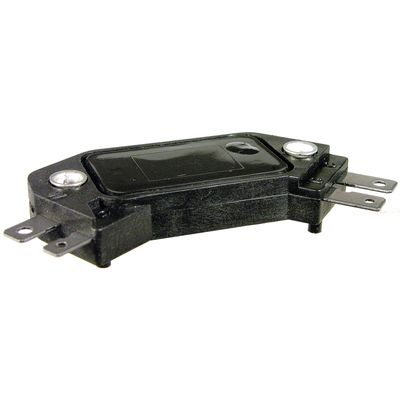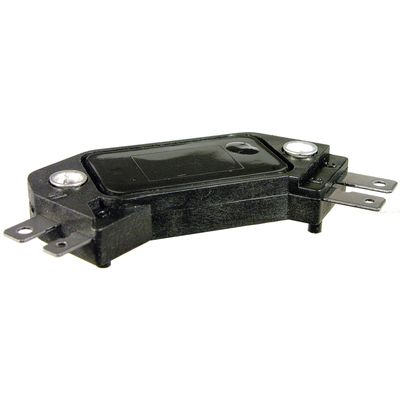Answer
Aug 15, 2024 - 07:43 AM
Yes, the ACDelco D1906 Ignition Control Module (ICM) can be tested for functionality. Testing the ICM involves checking its electrical characteristics to ensure it is functioning correctly. Below are the steps to test the module:
Tools Needed:- Multimeter: For measuring resistance (ohms) and voltage.
- Test Light: Optional, for checking signal pulses.
- OBD-II Scanner: Optional, for checking diagnostic codes.
- Screwdriver or Socket Set: To remove the ICM.
1. Safety Precautions:
- Turn Off the Engine: Ensure the vehicle is off and the key is removed from the ignition.
- Disconnect the Battery: To prevent any electrical shock or damage, disconnect the negative terminal of the battery.
2. Locate and Remove the ICM:
- Find the ICM, which is usually mounted near the distributor or ignition coils. Refer to the vehicle’s manual for the exact location.
- Disconnect the wiring harness and remove the ICM from its mounting.
3. Visual Inspection:
- Inspect for Damage: Look for signs of physical damage, such as cracks, corrosion, or burn marks on the module and connectors.
4. Resistance Test:
- Set Multimeter to Ohms: Use the resistance (ohms) setting on your multimeter.
- Measure Resistance: Test the resistance between specific terminals of the ICM as specified in your vehicle’s service manual. Compare the readings to the manufacturer’s specifications. A significant deviation indicates the ICM may be faulty.
5. Power Supply Test:
- Reconnect the Battery: Reconnect the negative battery terminal.
- Set Multimeter to Volts: Switch the multimeter to the DC voltage setting.
- Check Power Input: With the ignition key in the "ON" position (but without starting the engine), measure the voltage at the ICM’s power input terminal. You should get around 12 volts. If there's no voltage, the issue might be with the power supply rather than the ICM.
6. Signal Output Test:
- Set Multimeter to AC Volts: Switch the multimeter to measure AC voltage.
- Crank the Engine: Have someone crank the engine while you measure the output signal from the ICM to the ignition coil. The output should show a pulsing signal. If there is no pulsing signal, the ICM might be faulty.
Alternatively, you can use a test light to check for the presence of a pulsing signal. Connect the test light to the output terminal and observe it while the engine is cranked.
7. Spark Test:
- Remove a Spark Plug: Remove one of the spark plugs and reconnect it to its wire.
- Ground the Spark Plug: Hold the spark plug against a grounded part of the engine.
- Crank the Engine: Observe the spark plug while cranking the engine. If there’s no spark, the ICM or ignition coil could be faulty.
8. Heat Test (Optional):
- Heat the Module: Some ICMs may fail when they get hot. Use a heat gun to warm the ICM slightly.
- Retest: Repeat the resistance and signal tests after heating. If the ICM fails when hot but works when cool, it is likely defective.
9. Check for Diagnostic Trouble Codes (Optional):
- Use an OBD-II Scanner: If the vehicle has a Check Engine Light on, connect an OBD-II scanner to check for any diagnostic trouble codes (DTCs). Misfire codes or ignition-related codes can indicate issues with the ICM.
If the ACDelco D1906 ICM fails any of these tests—such as incorrect resistance readings, no proper voltage or signal, or no spark—it is likely faulty and should be replaced. Always consult your vehicle’s service manual for the specific resistance and voltage values required for your ICM. If you're unsure about performing these tests, it might be best to consult a professional mechanic.





Add New Comment